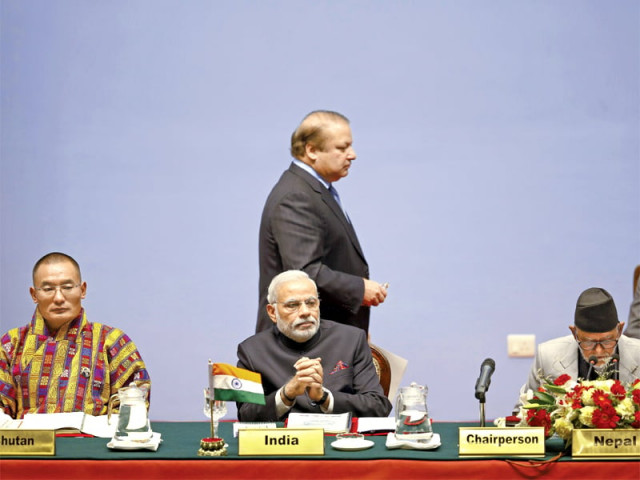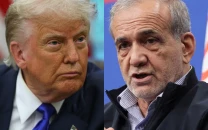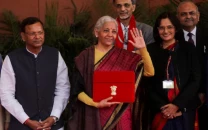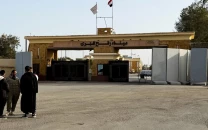Saarc summit: Pak-India friction threatens S Asia trade
The bickering spilled into the two-day Saarc summit in Kathmandu, as the two country’s leaders refused to meet

The bickering spilled into the two-day Saarc summit in Kathmandu, as the two country’s leaders refused to meet.
Indian and Nepali officials said Pakistan declined to sign three multilateral pacts with the eight members of Saarc. The agreements aim to boost road trade and electricity sharing, including across Pakistan’s border with India.
In an apparent reference to Pakistan, India’s foreign ministry spokesperson said one country had cited incomplete ‘internal processes’ for not signing the pacts, but stopped short of naming it. Pakistani officials did not respond to telephone calls seeking comment.
Almost all the leaders at the summit expressed dismay at Saarc’s sparse achievements since it was founded 29 years ago aiming to become a European-style union.
Regional integration would happen “through Saarc or outside it,” Modi warned the summit, if the grouping failed to agree on the pacts. Nepal’s former foreign secretary, Madhu Raman Acharya, echoed the sentiment, urging the bloc to step up ‘sub-regional cooperation’.
Despite a free trade pact since 2006, trade among South Asian nations makes up 5% of their total trade. They share few transport and power links.
China, free of the baggage that makes much of the region wary of India, has built ports and sold weapons across South Asia, where its new Asian Investment Infrastructure Bank has attracted interest, including from India.
Through Pakistan, China suggested it play a larger role in the regional grouping, but India rebuffed the proposal.
Modi held two-way talks with every leader except Prime Minister Nawaz Sharif, since neither was ready to make the first move to defuse tension between the nuclear-armed states.
India’s external affairs ministry ruled out the possibility of a meeting today (Thursday) as well. “No plans to have a structured meeting between Prime Minister Narendra Modi and his Pakistani counterpart Nawaz Sharif,” the ministry’s spokesperson, Syed Akbaruddin, was quoted as saying by the Press Trust of India on Twitter.
Akbaruddin hinted the same at a news conference in New Delhi earlier when he did not mention Premier Nawaz’s name among the leaders Modi would be meeting on Thursday. “The PM [Modi] will tomorrow (Thursday) have structured bilateral meetings with Presidents of Sri Lanka, Afghanistan and the Maldives and Prime Ministers of Bangladesh and Bhutan,” he had said.
“These are structured meetings which we will try to work on as meaningful dialogues with our partners. These were all the meetings that were asked for and we have acceded to every request,” he said. “We (India) are for a meaningful dialogue and that meaningful dialogue bilaterally would mean something very specific.”
Asked about Nawaz’s comment a day earlier that the ball is in India’s court to initiate talks, he said: “We have been shouting from the top of the roof that we are ready for a meaningful dialogue. The emphasis was on meaningful. Meaningful dialogue has a meaning in diplomacy. In Pakistan, they know very clearly what we mean by meaningful dialogue as they know us and understand us. They know everything.”
Published in The Express Tribune, November 27th, 2014.



















COMMENTS
Comments are moderated and generally will be posted if they are on-topic and not abusive.
For more information, please see our Comments FAQ